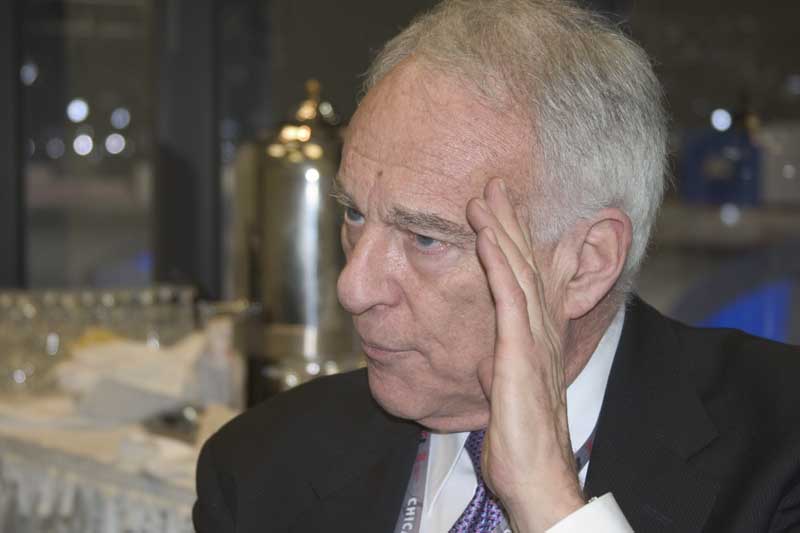Startup carmaker Tesla is just coming up on the 10th anniversary of its first delivery, the first of the 2,500 Roadster two-seat electric sports cars that launched it into world awareness.
The company recently delivered its 300,000th car, putting it well ahead of all but one other startup carmaker in U.S. history.
That would be Kaiser-Frazer, founded by famed industrialist Henry J. Kaiser, which sold 750,000 cars over its nine years of production, from 1947 through 1955.
DON'T MISS: Why Tesla's Elon Musk Must Sell 6 Million Electric Cars To Make History
Tesla could surpass that number within two or three years if it achieves its ambitious goals for sales of the lower-priced Model 3 first delivered last July.
That car has endured many months of what CEO Elon Musk called "production hell," though Bloomberg estimated last week production is now running at something like 1,000 cars a week.
Whether Tesla survives as a carmaker remains to be determined. The company has lost billions of dollars in its quest to get to mass production, though so far it has always found new sources of funding to stay in business.

Bob Lutz at Via Motors extended-range electric truck conversion launch, 2012 Detroit Auto Show
Last month, longtime auto executive and former GM product chief Bob Lutz, suggested collectors should consider buying new Tesla Model S cars.
That car, he said, is primed to be a future collectable, and buyers should act while the cars are “still available.”
Speaking with the Los Angeles Times after he made the comments on the sidelines of a collector-car auction, Lutz said his comments were “semi-serious,” but pointed out that Tesla continues to lose money.
READ THIS: Former GM Product Czar Bob Lutz Asks: Is Tesla Doomed? (Nov 2015)
A longtime skeptical of Tesla over its financial prospects, Lutz suggested he doesn't see that situation changing anytime soon.
The comments raise an interesting point: Are cars from four previous failed startup automakers now considered collectible—and are they particularly valuable due to their rarity?
Answers are mixed, depending on the carmaker in question and on one other factor.
![Henry J. Kaiser and Elon Musk, CEO, Tesla Motors [Kaiser image courtesy Kaiser Permanente] Henry J. Kaiser and Elon Musk, CEO, Tesla Motors [Kaiser image courtesy Kaiser Permanente]](https://images.hgmsites.net/lrg/henry-j-kaiser-and-elon-musk-ceo-tesla-motors-kaiser-image-courtesy-kaiser-permanente_100468732_l.jpg)
Henry J. Kaiser and Elon Musk, CEO, Tesla Motors [Kaiser image courtesy Kaiser Permanente]
Kaiser aside, the best-known startup carmakers have been Delorean (9,000 cars), Fisker in its first generation (about 2,500 to 3,000), Bricklin (2,850), and Tucker with a mere 51 cars.
The 2012 Fisker Karma is still too new to be judged by collector-car status, as you can buy a visually identical vehicle today brand-new from successor carmaker Karma Automotive, which now calls it the Revero.
Tuckers are now worth breathtaking sums (and have been for some time), and Deloreans now seem to be climbing in value.
CHECK OUT: 110-year-old electric cars sold at auction as collectors start to appreciate them (Jun 2016)
But Bricklins and Kaisers (along with their Frazer siblings) are not particularly valuable. They're appreciated by fans, and nice examples trade for decent money, but they're not in the stratosphere like Tuckers.
Part of that may be rarity value, but there's another factor: both the Delorean DMC-12 and the Tucker have featured in big-budget movies.
The Delorean appeared in the series of "Back to the Future" comedies, and the Tucker story was made into a film in 1988 called "Tucker: The Man and His Dream," starring Jeff Bridges as Preston J. Tucker.

Malcolm Bricklin
Tucker prices spiked as the film was being shot and thereafter.
Malcolm Bricklin's efforts to build the safety-focused SV1 two-seat sports coupe (in New Brunswick, Canada, no less) has never been the subject of a movie, though Bricklin himself is still very much alive and kicking.
Kaiser's story is in some ways the more interesting of the two, as it was (to borrow the title of Richard M. Langworth's comprehensive 1975 book on Kaiser-Frazer) really "the last onslaught on Detroit."
As far as we know, no one has turned Henry J. Kaiser's ambitious but ultimately failed efforts to start an automaker to compete with Detroit into a big-screen motion picture.
If any producers need help developing the story, we're available. :)













